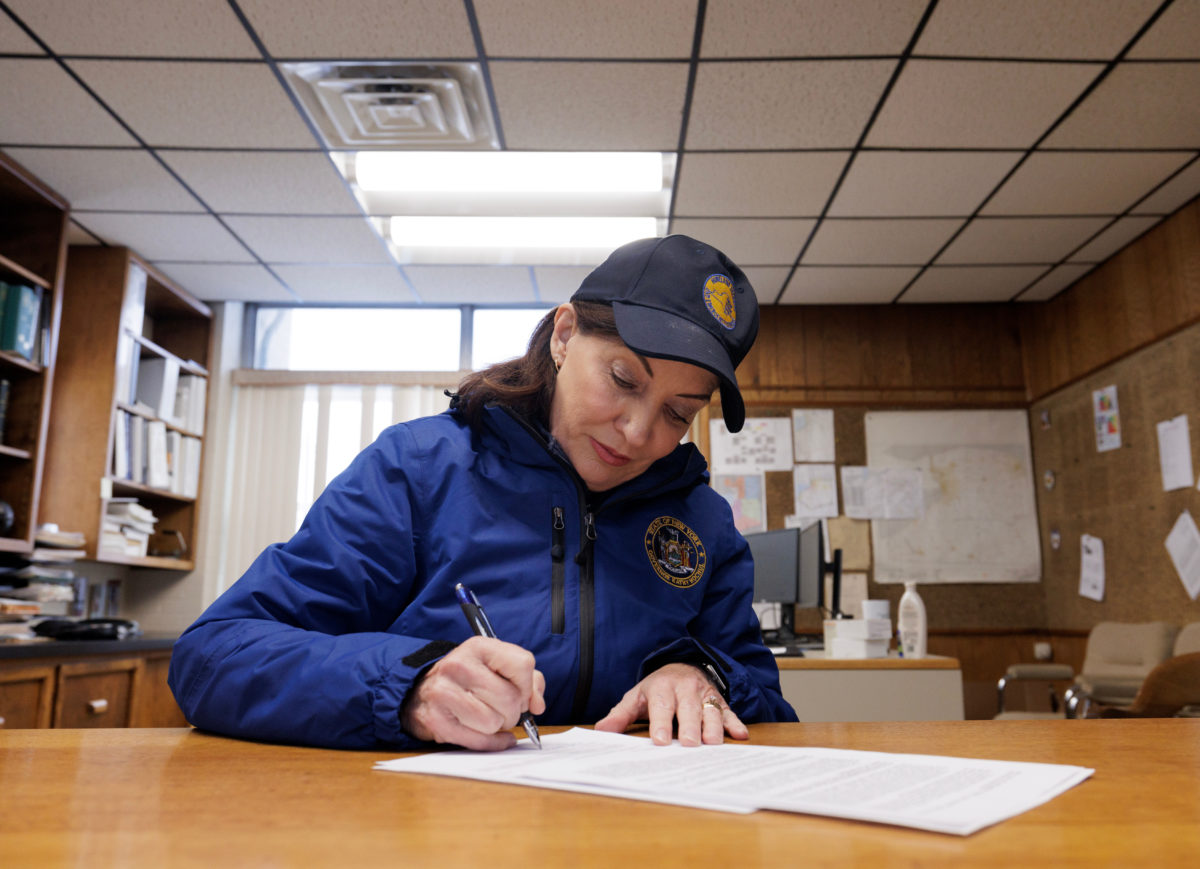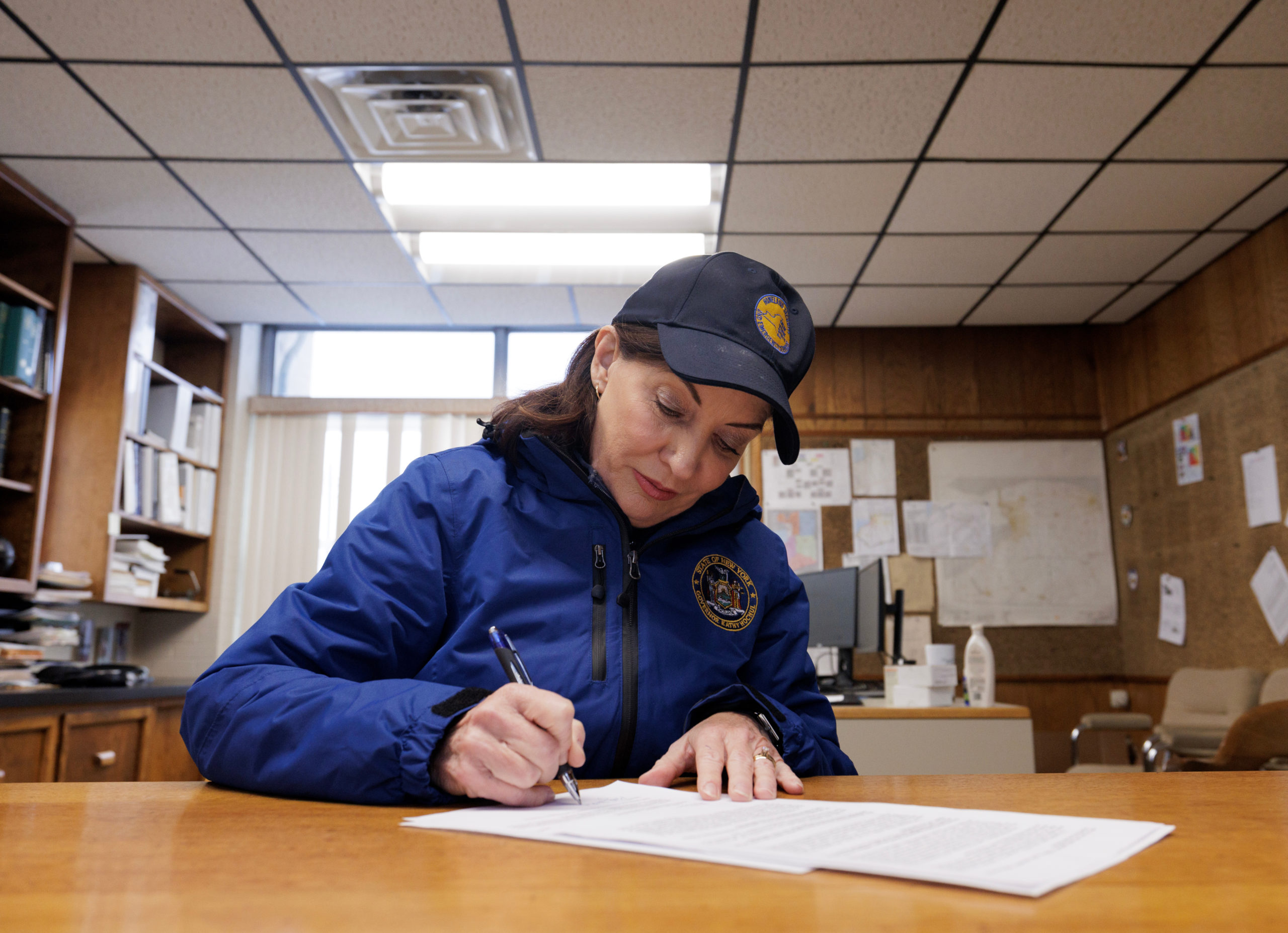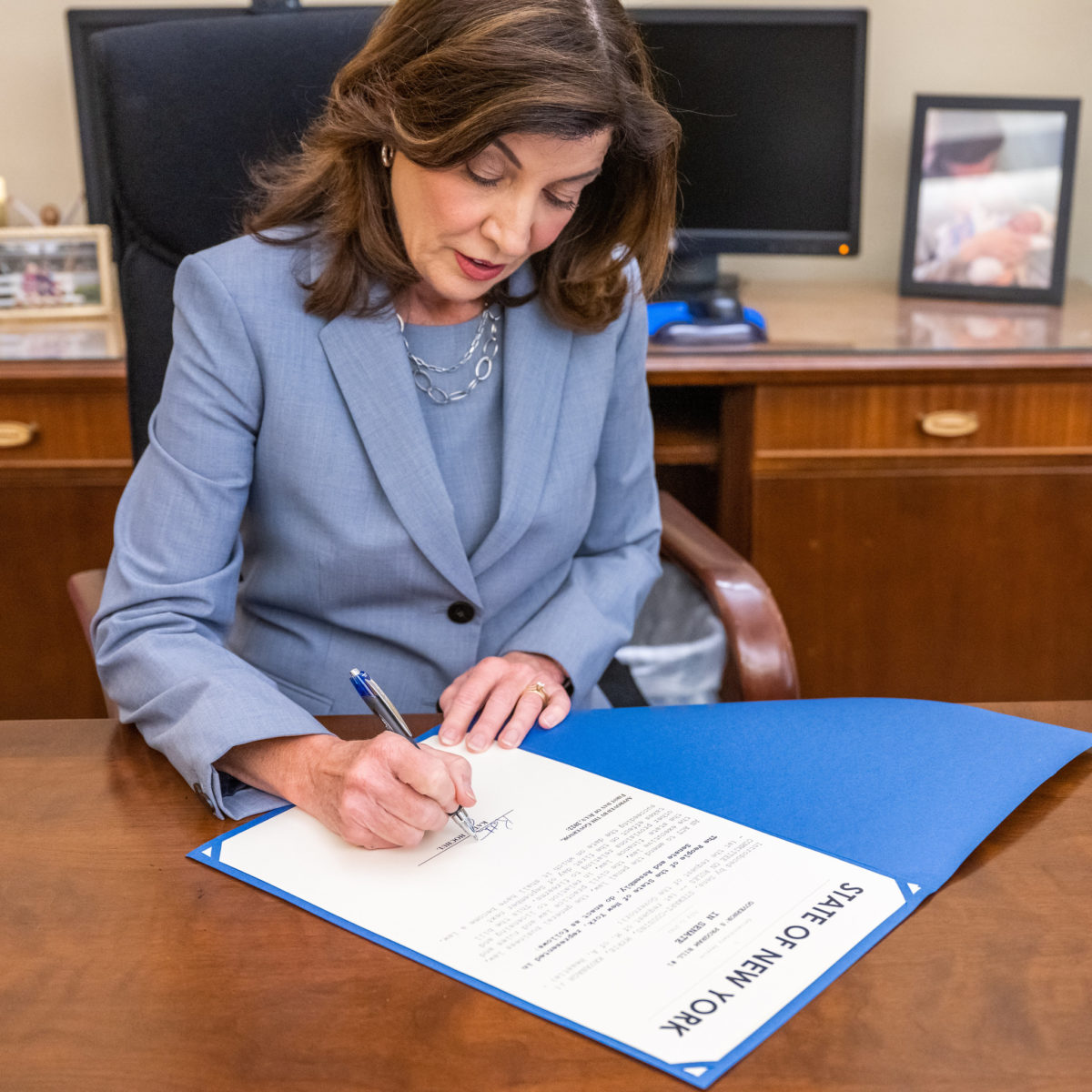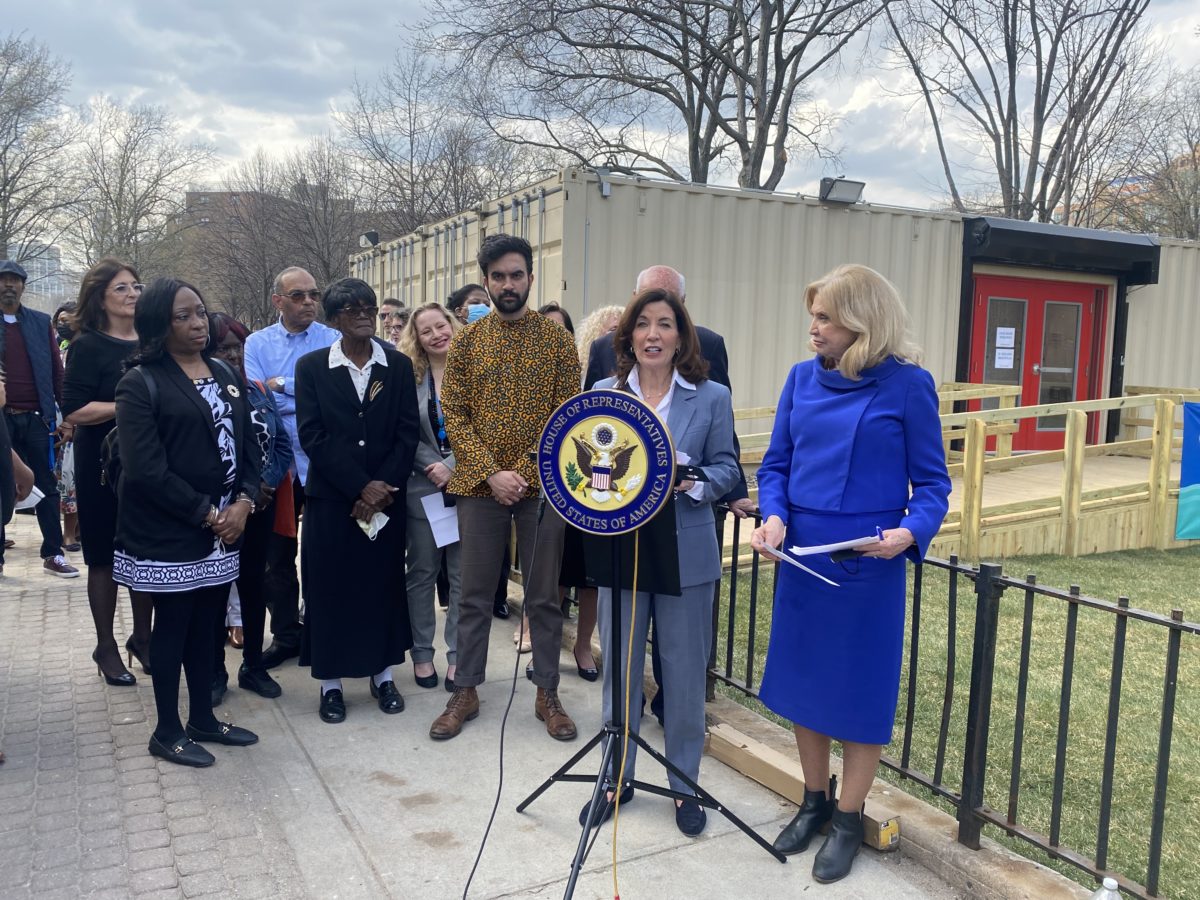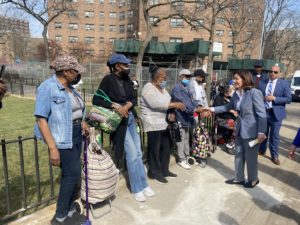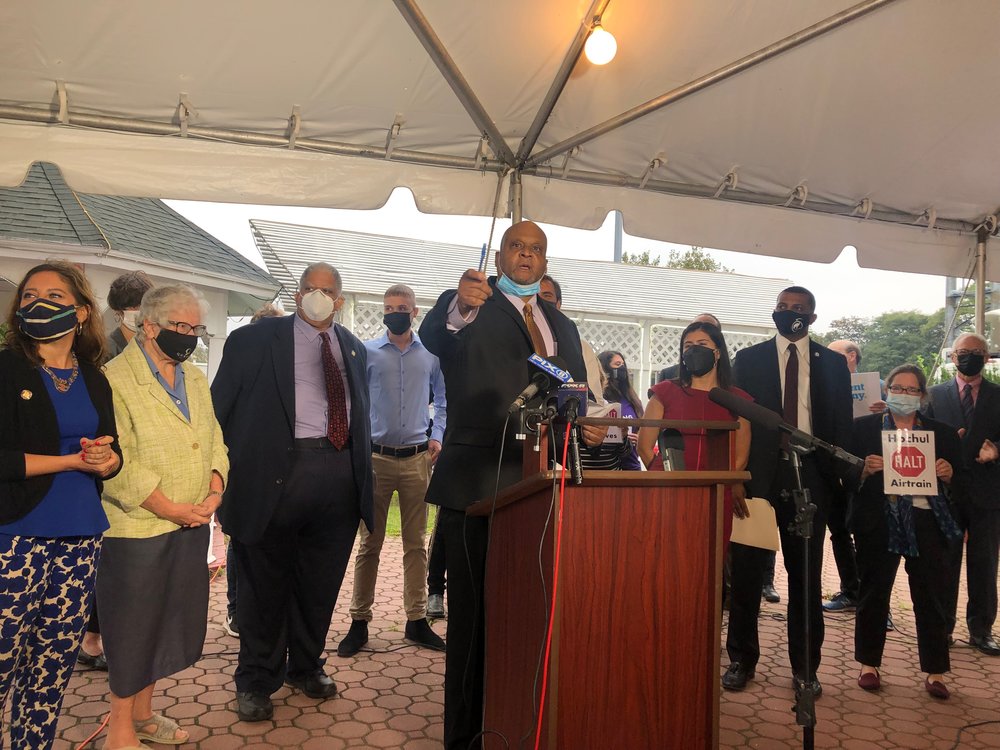End-of-year legislation signed by Hochul
Understand the legislation set to go into effect in 2023
By Alicia Venter
aventer@queensledger.com
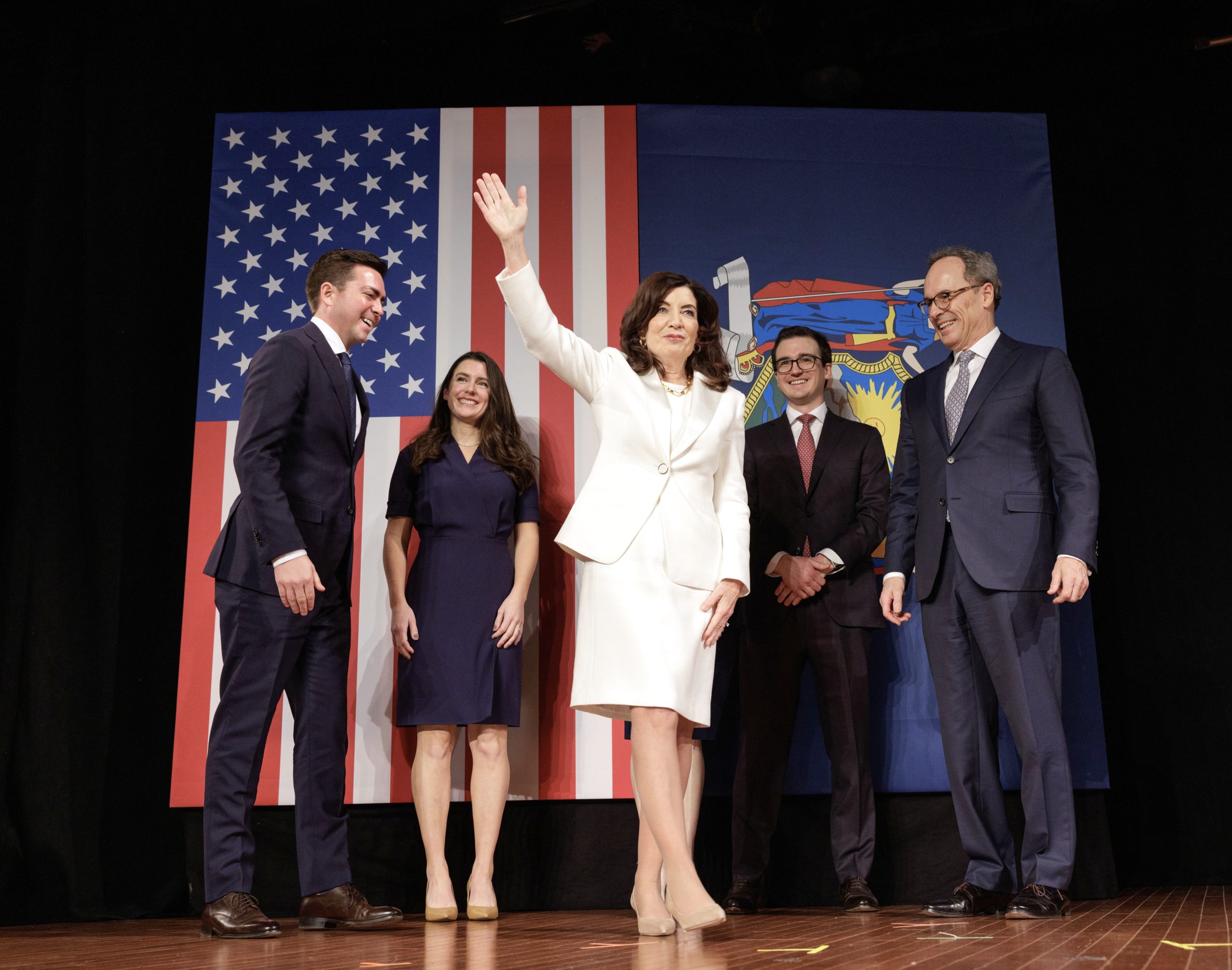
January 1, 2023 – Albany, NY – Governor Kathy Hochul takes the oath of office and delivers an inaugural address at the Empire State Plaza Convention Center in Albany. (Mike Groll/Office of Governor Kathy Hochul)
As the year came to a close, Governor Kathy Hochul had a busy two weeks. She became the first woman to be sworn into a full term as governor of New York on Jan. 1, and in the month prior, she signed numerous pending state legislation into law.
Notably, she signed a bill that prohibits discrimination based on citizenship or immigration status and immigration status is illegal in New York.
This law will expand the protections from the NYS Division of Human Rights, which currently investigates cases in which individuals have been potentially discriminated against due to their immigration status.
State Senator John Liu and State Assemblywoman Catalina Cruz came together with activists on Dec. 29 in front of Flushing Library to applaud the signing of this bill (S6586A/A6328A).
“We appreciate Governor Hochul for signing this legislation in recognition that our state is made greater by the vast contributions of talented and aspiring people from everywhere in the world who adopt New York as their new home,” Liu said in a statement. “Unfortunately, even as they pursue the American Dream, they are stymied by obsolete federal laws and byzantine bureaucracies that prolong their path to citizenship and subject them to bias and discrimination. This bill will help provide equal opportunity in employment, housing, and other needs that all New Yorkers should have access to.”
The first state program in the nation allowing individuals to be reimbursed for the costs of kidney and liver donations came from the governor’s office this week.
The legislation (S.1594/A.146A) amends the public health, tax and social services laws to enact the “New York State Living Donor Support Act,” which will establish a program to cover the extra costs that come with organ donation for New York residents who donate to a fellow New Yorker. The law comes in an effort to eliminate financial barriers to organ donation and, as a result, reduce wait times for organ transplants and address the organ shortage in New York.
As of publication, there are over 8,000 people on transplant wait lists, most of whom are awaiting a kidney, according to the Organ Procurement and Transplantation Network.
A legislative package (S.3897/A.8936-A) supporting pedestrians, bikers and transit riders included increased funding for “Complete Street” projects.
A Complete Street is a roadway designed for all roadway users — not just drivers.
This includes pedestrians, bicyclists, public transit riders as well as motorists. It also makes an effort to focus on children, the elderly and persons with disabilities.
With this legislation, the state’s contribution to the non-federally funded portion of the project increases to 87.5 percent.
New legislation (S.3959-B/A.7822-C) will require the non-voting transit dependent representative be moved into a voting position on transportation authorities’ boards. In short, this new legislation will provide a vote — and a voice — to riders who permanently rely on transit services including bikeshares, buses and paratransit.
To protect existing labor laws on behalf of workers, Hochul signed legislation (S.5994C/A.1338C) that establishes a registration system for contractors and subcontractors engaged in public work and covered private projects. This law will require contractors and subcontractors to provide a series of disclosures about their businesses every two years with the Department of Labor.
The department will determine whether a contractor or subcontractor is fit to registers based on previous labor law and workers compensation law violations, including prevailing wage requirements. This law will create a publicly available database.
Furthermore, notable previously signed laws that are set to go into effect in 2023 include the establishment of a task force and annual report to examine social media and violent extremism.
The Electric Vehicle Rights Act, which prevents a homeowners association from adopting or enforcing any rules or regulations that would effectively prohibit, or impose unreasonable limitations on the installation or use of an electric vehicle charging station, is set to go into effect on Jan. 21.
In this year, student-athletes will be able to receive endorsement compensation, and New York schools will be prohibited from taking away the scholarships or eligibility of any athlete making money from such endorsements.




